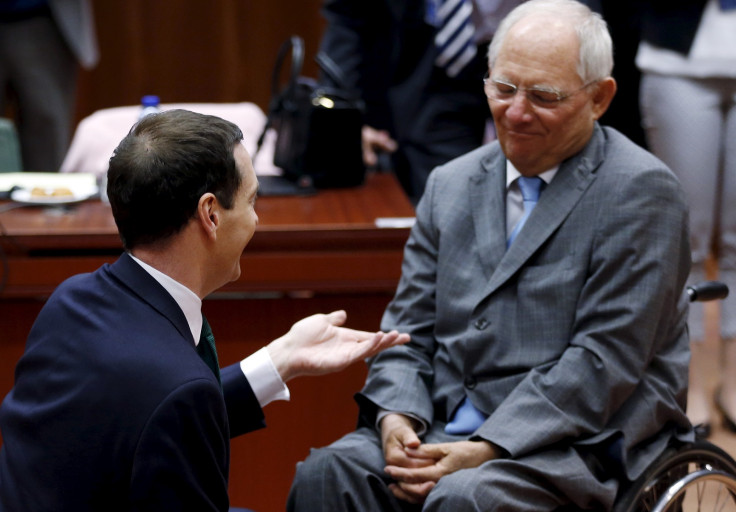Britain and the EU: Germans scupper David Cameron's plan for quick renegotiation of ties

Germany has dealt an early blow to David Cameron's pledge to reach far-reaching changes to Britain's relationship with the EU, saying it will not be rushed into changing the 28-member bloc's treaties.
After meeting George Osborne George Osborne in Brussels on 12 May, Germany's powerful Finance Minister Wolfgang Schaüble attacked the Chancellor of the Exchequer's "silly" and "unnecessary" record of intervening in the eurozone crisis. He added that many EU officials believe Whitehall intentionally sought to undermine monetary union.
Osborne has been appointed London's lead negotiator on Europe's ties with the UK - a key pledge in the Tories' manifesto. He was told clearly by his German counterpart that Britain would not be able to hitch its reform demands to a revamp of the eurozone.
The opinion of the German government has always been that we need treaty changes, whenever, the sooner the better. But the realistic assessment of the German government is that it is not at all certain that this can be achieved quickly
Cameron has insisted that he will present an in/out referendum by 2017 on Britain's membership of the EU after he has concluded negotiations with the bloc. A spokesman for Number 10 said he would accelerate the timetable for the vote if possible.
Schaüble said any reopening of treaties would not happen for some time, and would be achieved "more step-by-step".
"The opinion of the German government has always been that we need treaty changes, whenever, the sooner the better," Mr Schaüble told reporters after the meeting. "But the realistic assessment of the German government is that it is not at all certain that this can be achieved quickly."
He added: "My conviction is that if we cannot complete these things [eurozone reforms] in an orderly way [we will have problems]," Schaüble said. "What it's about is defending and making relevant the structure of the European currency union."
Austrian Finance Minister Hans Jörg Schelling, echoed Schaüble's sceptism about using an in/out referendum as a way to overhaul Britain's role in the EU.
"I think politicians have to act decisively," he told reporters. "When politicians believe they have to ask the people, it's an indication that they themselves are not willing to make the decisions and carry the consequences."
As he arrived for the Brussels meeting, Osborne said treaty change would be beneficial to both the UK and other European countries. "We come here with a very clear mandate to improve Britain's relationship with the rest of the EU and to reform the EU so that it creates jobs and increases living standards for all its citizens," he said.
© Copyright IBTimes 2025. All rights reserved.





















